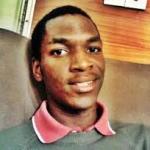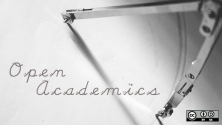People in Sub-Saharan Africa face hurdles to get online. Despite some progress, the region lags behind in Internet connectivity due to the high costs of service and poor infrastructure, according to a recent World Economic Forum report.
This digital divide means some African communities are underrepresented on the web. Without a well-developed online presence, misinformation about them can spread relatively unchallenged.
The Kumusha Takes Wiki Project wants to give those communities a voice. The initiative is working to enable African people to take ownership of information on Wikipedia to strengthen the level of understanding foreigners have about local communities across Africa—and the continent more broadly. The word "Kumusha" in the Shona language of Zimbabwe means "the place where one comes from." According to the project,
[Kumusha Takes Wiki] uses community journalism to gather community-relevant information on heritage, culture, notable persons, geographical features, among other things. It gives each community an online presence that is 'owned' by the community [...] and it adds immeasurably to the understanding of Africa to every human being on the planet.
Much existing information available about local African communities can only be accessed within the confines of specific languages and dialects. Though Wikipedia is available in several local African languages including Swahili, Yoruba, Zulu and Afrikaans, these versions are underdeveloped due to a small number of contributors. Thus, there is a need for skills development and encouragement among new communities across the continent.
This is part of the larger WikiAfrica, which "encourages individuals and organisations to create, expand and enhance online content about Africa, its history, its people, its innovations and its many contemporary realities, on the world’s most used encyclopaedia, Wikipedia."
Kumusha Takes Wiki centers on "activating" communities, starting initially as a pilot in two countries: Cote d'Ivoire and Uganda. In the two targeted countries, Wikipedians In Residence work with various communities, such as fishing and agriculture, universities, writers and borders towns, teaching them how to contribute to and edit Wikipedia about their local environments and heritage.
Zimbabwe-born Isla Haddow-Flood is the project manager ofKumusha Takes Wiki, who has spent the majority of her life in Africa. Through Skype, she told us that the project will work to create information that benefits everyone—not just those writing the articles. So far, there have been many challenges, including a lack of cell phone coverage and Internet connection in remote areas, and sometimes a language barrier.
Also involved in correcting the spread of incorrect information, the Africa Centre, where the project is based, is working on other projects to "revitalize the information base", including (but not limited to):
- Badilisha Poetry X-Change—A poetry podcast platform dedicated to the discovery, exposure and archiving of contemporary and historical poetic voices from Africa and its Diaspora.
- Everyday African Urbanism—a research and intervention laboratory which seeks to understand and intervene in some of Africa’s most pressing social challenges. The current lab focuses on food security in South African cities.
- Infecting the City—a public arts festival bringing art out of theatres and galleries, into the communal spaces of the City of Cape Town.
- More WikiAfrica programs, including WikiEntrepreneur—a social entrepreneurship model working with African museums, libraries, galleries, media houses and universities to share information with Wikipedia and WikiAfrıca Culture and Knowledge, working with writers, experts, journalists, academics and archival organisations to expand Wikipedia in the field of African culture.
Together, these projects hope to (as they say at WikiAfrica) "share their knowledge of their community and passions" across the world.
This article originally appeared on Rising Voices, and is republished here via a Creative Commons license.






Comments are closed.